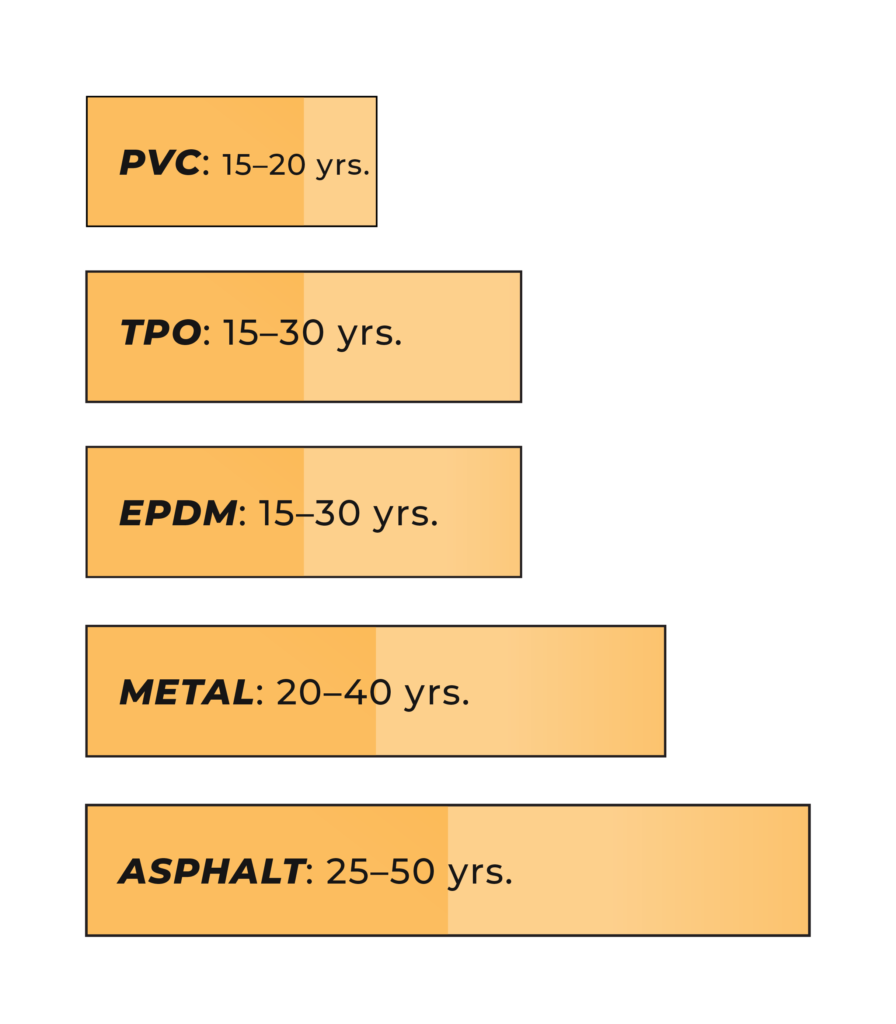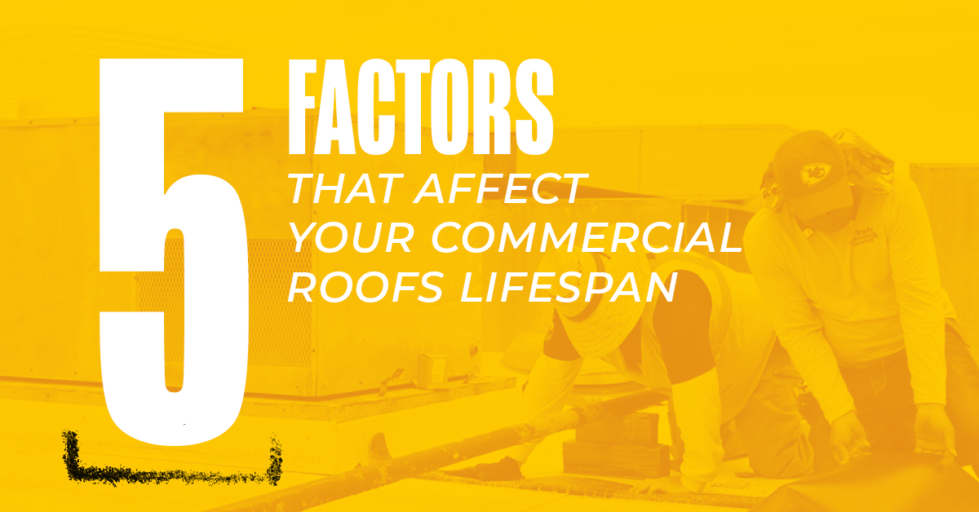As an owner of a commercial property, roof lifespan and longevity are important for the health of your building and your business as a whole. Without a properly functioning roof, you may find inventory damage within your building or a deterioration of your building as a whole. Avoid disaster by understanding the 5 main factors that affect the lifespan of your commercial roof on a daily basis. Understanding these factors will give you better perspective on when to check for damages and call the professionals for an inspection. We’re here to help you be proactive about the longevity of your commercial property.
Weather
At this point, it’s common knowledge that extreme weather greatly affects the lifespan of your commercial roof. Although, most don’t understand how or why weather may cause such damage. The average roofing system is built and installed with the intention that it can weather heavy rains, strong winds, and hail; but these weather systems can create damage over time with frequency. It’s best to have a commercial roof inspected after an impactful summer storm. The concerns don’t stop with turbulent spring/summer weather; winter and fall are of equal concern. Decomposing leaves on a commercial roof in the fall can spur mold growth, water retention, and incorrect draining; all of these symptoms can lead to potential leaks. The blockages caused by autumn leaves may worsen in the winter, as frozen water finds its way into cracks and expands them into larger damage. One cubic foot of roof covered in ice can add up to 60 pounds of pressure.
Roof Pitch
The pitch of the commercial roof also has effects on the lifespan and longevity. The most common style of commercial roof, flat roof, can lead to standing water due to its absence of a slope. This standing water can create mold, cracks, and deterioration that may worsen with various types of extreme weather. When correctly installed with a proper drainage and gutter system, this is not a problem, but still requires continual upkeep. Sloped roofs tend to have less issues as they are created for optimal drainage and water runoff when it comes to standing water. Although, a proper drainage and gutter system is equally important here as with flat roof systems.
Sun Exposure
The sun and its UV rays are a powerful force at deteriorating a roof, a factor that isn’t as often considered. Other than metal and EPDM rubber membrane materials, most roofing materials with degrade with continued exposure to ultraviolet light radiation. The heat from the sun also causes contraction and expansion, which may compromise the structural integrity of your roofing system. If you live in a warmer, sunnier climate, you may need to consider a long-lasting roofing material that is less affected by intense sun and heat.
Roofing material
Choosing a roofing material is where Aspen Contracting comes in. We’ll help you by providing our expertise on which material will last and fits correctly within your budget and requirements. The most common commercial roofing systems are as follows: PVC roofing system, TPO roofing system, EPDM roofing system, metal roofing system, and the classic asphalt shingle roofing system. Polyvinyl Chloride (PVC) roofing systems are expensive in upfront costs, but is the best material for areas afflicted by wildfires as It is fire-resistant. Thermoplastic Polyolefin (TPO) roofing systems are more cost effective than PVC, using a membrane style protective system. Ethylene Propylene Diene Monomer (EPDM) roofing systems also feature a rubber membrane which helps to increase the lifespan. This system has been proven overtime to have a great lifespan even in locations with harsh weather conditions. Metal roofing systems have a reputation for having the best commercial roof lifespan. Having a metal roof retrofitted to a previous system can even increase the lifespan by 20 years. Asphalt shingle roofing systems are the most well-known and widely used. See the graphic below to understand more about the lifespans of these various roofing systems:

Correct Installation
This goes without saying, but installing a roofing system correctly and effectively greatly extends the longevity of said roof. Using unprepared or inexperienced roofers may save you money upfront, but the mistakes made in the installation will cost you more in the long run. It’s better to contact Aspen Contracting, where we are experts at giving you a commercial roofing system that lasts.
